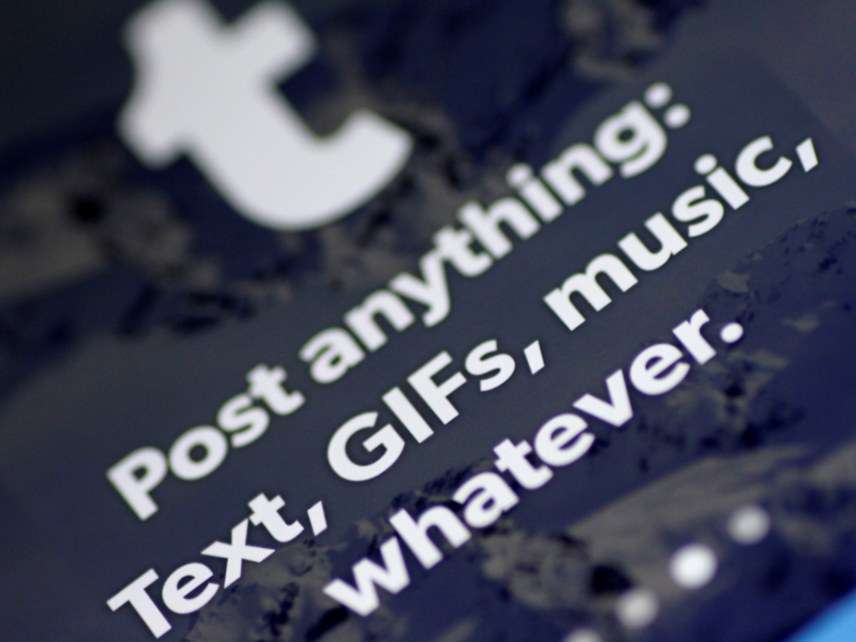Tumblr Says It's Banning Porn. This Will Not End Well.
Research shows a fifth of its users seek out sexual images. But the sharing site is now part of a massive media conglomerate.

Tumblr announced today that it will be banning all adult images from its site beginning in mid-December. That decision that will most certainly cause a mass exodus from the platform, which is heavily focused on sharing images and memes.
The freewheeling nature of Tumblr, a sort of alternative social media platform focused on short and simple multimedia posts, made it an ideal incubator for sharing pornographic images and video excerpts. In 2016, when researchers probed how much porn was on Tumblr, they found that less than 1 percent of the site's accounts produced pornographic imagery—but a full 22 percent of users were following these accounts in order to view it.
That study also noted that 28 percent of Tumblr users were being "unintentionally" exposed to adult images. That is to say, they didn't follow the primary pornographic producers, but they followed other accounts that do follow the producers and those consumers are able to share the adult images at the click of a button. Note, though, that users can voluntarily label their account as having adult content, which then adds a level of screening in searches.
In 2013 Tumblr was bought by Yahoo, which was then bought by Verizon; it's now under the umbrella of a subsidiary named Oath. In other words, Tumblr is now part of a massive telecommunications monolith. And the shit hit the fan around Thanksgiving, when Apple removed Tumblr's app from its store because some child-porn images slipped through its screening filter.
What does the failure of a screening filter have to do with the existence of sexual content involving consensual adults? Outwardly nothing, but clearly the company has decided it no longer wants to be known for the main thing it is known for. Starting on December 17, adult images (including illustrations) that depict nudity or sex are banned from Tumblr (with a few exceptions, for example, for nudity found in artworks or health-related posts).
Here's part of a somewhat contradictory message from Tumblr explaining the decision:
It is our continued, humble aspiration that Tumblr be a safe place for creative expression, self-discovery, and a deep sense of community. As Tumblr continues to grow and evolve, and our understanding of our impact on our world becomes clearer, we have a responsibility to consider that impact across different age groups, demographics, cultures, and mindsets. We spent considerable time weighing the pros and cons of expression in the community that includes adult content. In doing so, it became clear that without this content we have the opportunity to create a place where more people feel comfortable expressing themselves.
Bottom line: There are no shortage of sites on the internet that feature adult content. We will leave it to them and focus our efforts on creating the most welcoming environment possible for our community.
Tumblr wants to make people "more comfortable expressing themselves" by forbidding them from expressing themselves in certain ways that maybe make certain other people uncomfortable.
As a private company, of course, Tumblr can host and ban whatever it wants. But before accepting that these are fully private business decisions, recall that governments are constantly applying pressure on online social media sites to suppress pornographic content. U.K. Prime Minister Theresa May has made it abundantly clear she wants to force online media platforms to add costly screening tools to make certain that children cannot access pornography online.
So, yes, this is a private business decision, but it seems like a counterproductive and possibly self-destructive one that suggests more than what we see on the surface. Here's an interesting Twitter thread by Casey Fiesler about online fandom that shows that when other platforms have banned adult content, there was a mass exodus. Which is to say, fandom produces a lot of fantasy porn about the characters who the consumers lust after. A huge amount of it is on Tumblr right now. But probably not for much longer.
Below, a valuable explainer about the role of porn on the internet:


Show Comments (67)